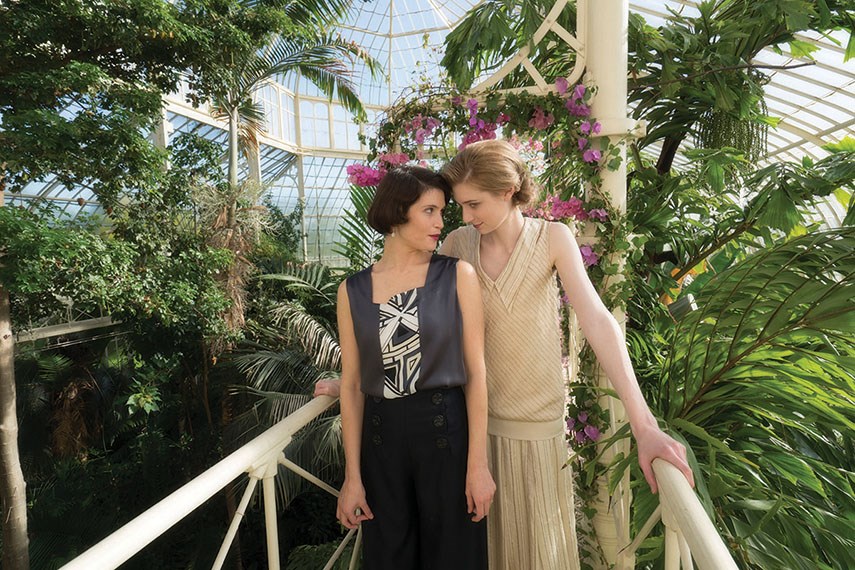Vita & Virginia. Directed by Chanya Button. Starring Gemma Arterton and Elizabeth Debicki. Rating: 6 (out of 10)
Writing is a tedious business and often a blood, sweat and tears kind of enterprise.
Which is why watching actors recite long strings of famous prose seems cumbersome, and somehow a disservice to the process, even if the words were gleaned from love letters.
In her film Vita & Virginia, about the passionate affair between writers Vita Sackville-West and Virginia Woolf (Gemma Arterton and Elizabeth Debicki), director Chanya Button has the actors deliver those words directly to the camera. It creates distance rather than intimacy, and passion held at arm’s length is one of the reasons the film falls short of great.
Vita Sackville-West was an aristocrat, poet and best-selling author at a time when Virginia Woolf was upper-class yet “socialist, bohemian,” and decidedly less successful. “Virginia is a wickedly brilliant mind and I must know her,” Vita declares, and begins to insinuate herself into the Woolf household, Virginia’s husband Leonard (Peter Ferdinando) notwithstanding.
Vita had already run off to the continent with a former lover, a scandal that her mother, Lady Sackville (Isabella Rosselini) will not let her forget. It’s the threat of disinheritance – rather than propriety – that keeps Vita more or less in line. “You do like to have your cake and eat it, Viti, and so many cakes,” says Vita’s husband Harold (Rupert Penry-Jones), who was himself gay, but far more discreet than his wife.
Virginia is reluctant to enter into a romance. She is prone to headaches and bouts of severe highs when she is writing, lows when a novel is complete. Her busy mind sees blooms poking through the floorboards and trailing out of works of art; she relies heavily on the constancy of her husband Leonard. (The film is, among many things, a reminder that behind every great mind is a long-suffering partner.)
The two women start a passionate epistolary relationship when Vita’s duties as a diplomat’s wife take her abroad, and Virginia finally agrees to a physical one when Vita returns. Call it love or obsession, it becomes all consuming, a threat to the marriage of one woman and the mental stability of the other. “You have as much of me as I have to give,” Virginia pleads at one point.
The characters of both writers are well drawn and full of enough depth and detail that we are left curious to learn more. The performances too, are executed flawlessly, down to their impossibly clipped upper-crust accents. Debicki (best known for her turn in Widows) has the burden of having to move between fragility, assurance, resistance and madness; Arterton’s portrayal of the somewhat predatory Vita is no less fascinating.
Alas, we don’t quite believe it. A brief love scene in soft focus meant to show Virginia’s awakening sexuality is less than convincing; the scenes when the lovers are apart are stronger than the ones when they are in the same room.
The film ends on a high, sort of, with Virginia working through the relationship’s dissolution by using Vita as her model for the groundbreaking “Orlando,” which would mark a turning point in Woolf’s literary career. The film will find initial reception among the literati, LGBTQ audiences and anyone willing to challenge the line “women can’t cope with too much grey matter,” but the love story’s lack of spark won’t give it legs for long.



